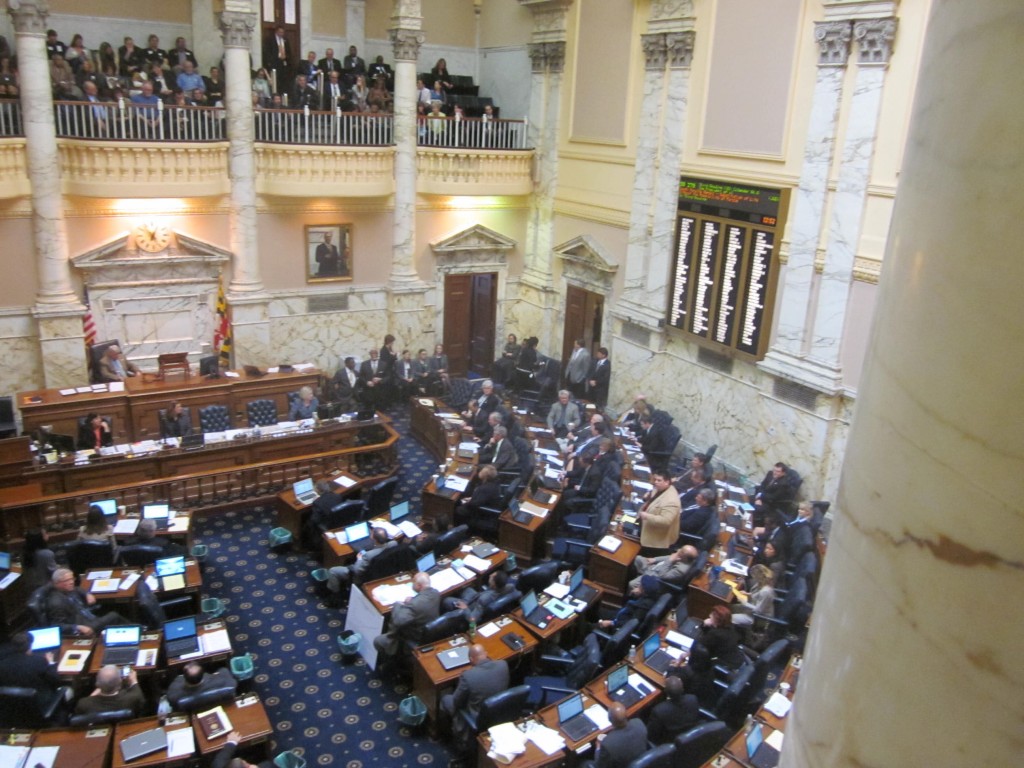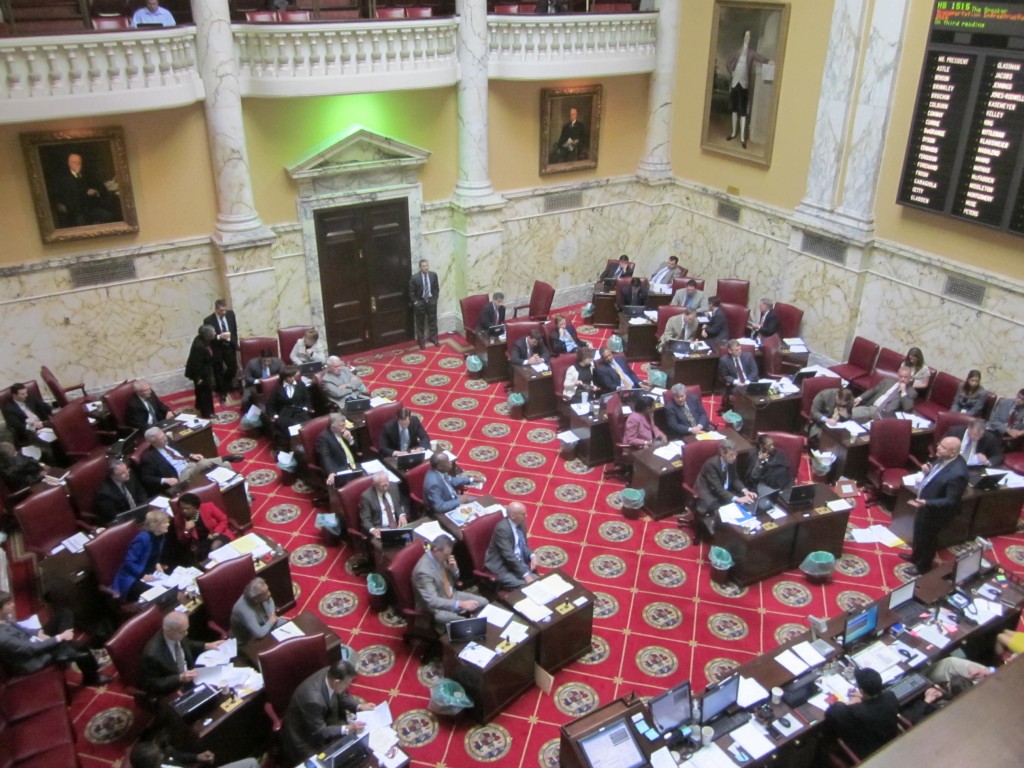$37 billion budget passes easily, including cut in pension funding
By Len Lazarick
A $36.9 billion state budget for fiscal 2014 easily passed the House of Delegates and state Senate Friday, with less Republican opposition than last year. The budget, HB 100, raises overall spending 3% and is $500 million less than Gov. Martin O’Malley originally proposed, largely by setting aside funds in case federal budget cuts impact state revenues.
There was none of the contention that led to an impasse last year and eventually a special session to resolve the budget in May. The major difference between the House and Senate budgeters was $100 million senators cut in pension contribution.
$100 million pension cut delays funding of future pension liabilities
The cut reduced the use of additional salary contributions from state employees and teachers passed in 2011 to $200 million, and the $100 million will be set aside in a “dedicated purpose account” to be used if revenues fall.
Del. John Bohanan, D-St. Mary’s and member of the House Appropriations Committee, said if the money is not needed by Jan. 1 to respond to revenue losses, $100 million will be put in the pension fund.
“The pension underfunding is still a huge burden over our head,” objected Del. Susan Krebs, R-Carroll.
The cut in pension contribution delays funding of future pension liabilities by a whole year, until 2024. Unions for state employees and teachers did not object to the move, which was designed to protect 2014 funding levels. When originally passed they had opposed increased salary contributions from their members and the limit on how those increased contributions would be used to fund future pensions.
Funds set aside for Rainy Day fund, impact of federal sequestration
The budget contains over $1 billion in fund balances, including the Rainy Day fund, surpluses and the set aside for the impact of federal sequestration.
“We’re within spitting distance of closing the structural deficit,” Bohanan said, with revenues now covering 99% of spending commitments. Five years ago, there was a $2 billion gap between revenues and expected increases in expenses.
House Minority Leader Tony O’Donnell complained that in the compromises with the Senate, Rainy Day Fund was reduced from 6% of the general fund to 5%, and the remaining structural deficit widened slightly.
Education funding, salaries goes up in budget
Among the major increases in the budget: School spending goes up $110 million or 2.2%; $25 million was added for school safety and security improvements at schools; state colleges and universities get 7% more, helping them to keep tuition increases to 3%; state employees will get both a 3% cost-of-living adjustment and merit increases.
Textbook aid to private schools, a sometimes controversial program, goes up by a third to $6 million.
Members of the House and Senate committees didn’t like the $7.2 million cut in this year’s mental health funding reported here on Friday, but “there’s nothing we could do about it,” Senate Budget and Taxation Committee Chairman Ed Kasemeyer told his Senate colleagues.
The House vote on the bill was 101-36; the Senate vote 37-8.

MarylandReporter.com is a daily news website produced by journalists committed to making state government as open, transparent, accountable and responsive as possible – in deed, not just in promise. We believe the people who pay for this government are entitled to have their money spent in an efficient and effective way, and that they are entitled to keep as much of their hard-earned dollars as they possibly can.


